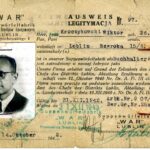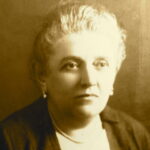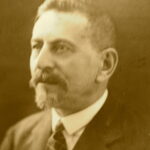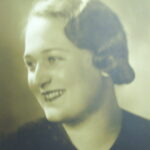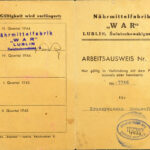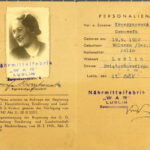Irene Solnick was born August 22, 1937 in Przemyśl, Poland. Her name at birth was Ruth, but Irene was the Christian name she was given in wartime Poland – to help her to survive the Shoah. She was raised in a mixed Jewish family, where her grandfather and father were Orthodox, Yiddish-speaking successful merchants, while her mother’s side was more assimilated, speaking Polish at home. When the Nazi-Soviet Pact partitioned Poland, Irene’s family found themselves in the Soviet zone, where they were identified as capitalists. They lost their possessions and were evicted from their home. When the Nazis invaded in June 1941 things got much worse. By this time the family was in Lvov, and in short order they were in the ghetto, facing restrictions like forced labour, overcrowding, food shortages, and the armband. They were also becoming aware of the deportations – which they would see take place on the street. Irene’s mother sensed the impending danger and sought to build new identities for her family, at first against the objections of her husband. The suicides of his parents changed his outlook though, and the family looked for ways to escape – and for people who would help them. Irene found herself in the care of a teacher at one point, while her parents were out of the ghetto securing new identification papers. A neighbour threatened to denounce the teacher, and she returned Irene to the ghetto, where she found herself in a round-up. A quick-thinking physician contrived a story, and he was able to take Irene with him, avoiding the deportation likely bound for a death camp. Her parents began to look for someone who could smuggle them out of the ghetto and into a new locale, where they could start a life in hiding. That shepherd took them to Lublin, claiming he had connections there, but it quickly became apparent that he did not, and Irene’s father had to start to improvise. He signed up for a course, found the family lodgings, and began to navigate his way in a very dangerous world. The goal of the family was to live as “Aryans”, hiding in plain sight. Things became even more dangerous when Irene’s uncle and his family fled Przemyśl, hoping to find a safe place in Lublin. Irene’s parents took them in and hid them: that led to many complications, and a relentless degree of risk hung over the household that next year. Liberation at the hands of Soviet forces came in 1944. The family was able to venture outside and to pick up the pieces of their former lives, and to see the horrors that had taken place at Madjanek. The decision was made to leave Poland, as antisemitism was still rife. The family secured new identification and went first to France, and eventually to the United States. Crestwood students were able to zoom with Irene on two occasions, in February and April 2024.
Videos
Click next video below to keep watching

